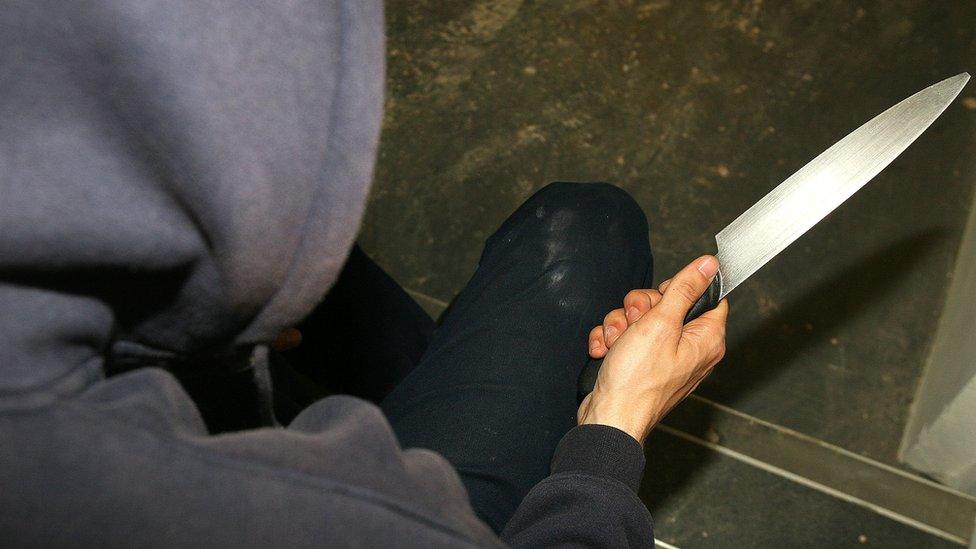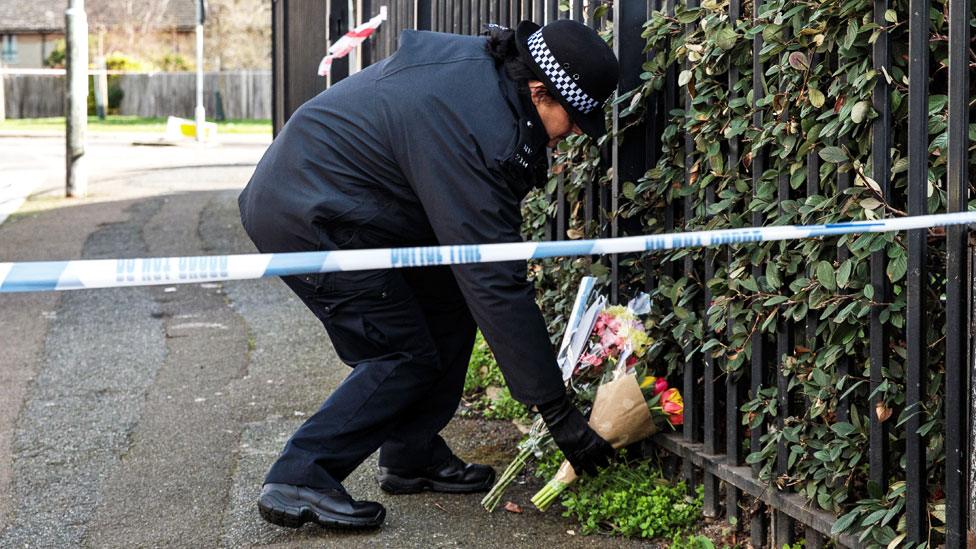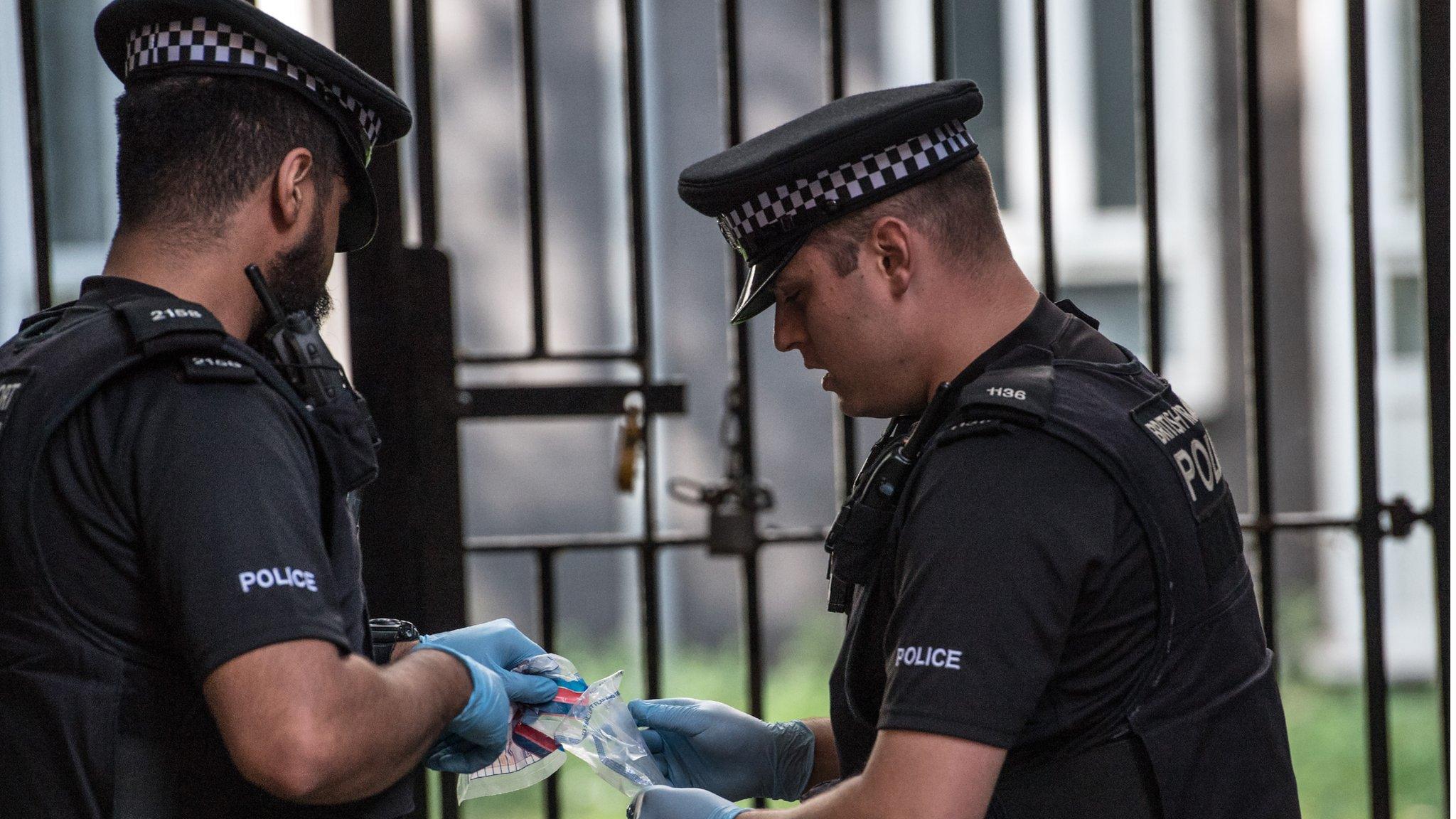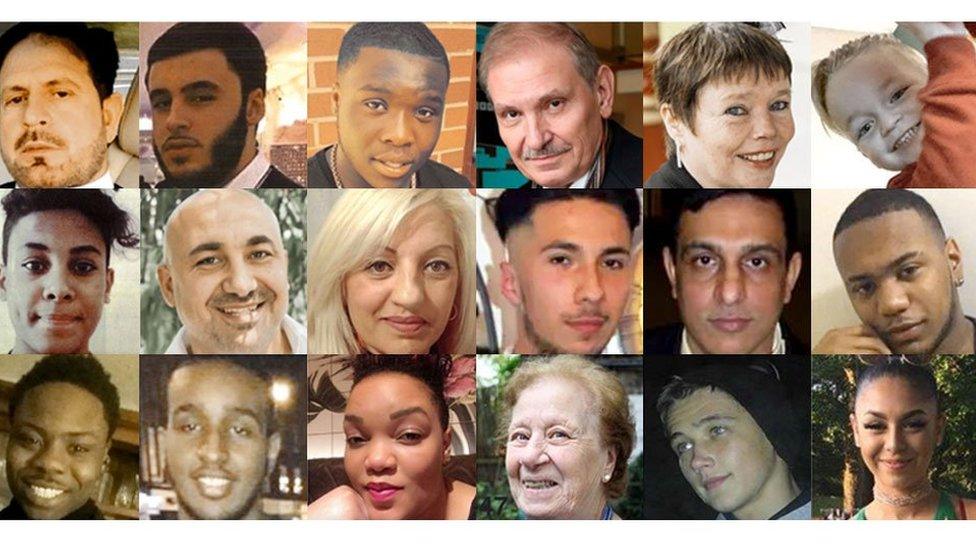Rising knife crime linked to council cuts, study suggests
- Published

Councils with large cuts to youth services were more likely to also have seen an increase in knife crime in the area's police force, research suggests.
The All-Party Parliamentary Group on Knife Crime (APPG) studied budgets for youth services from 2014/15 to 2017/18. It also analysed knife crime data.
It said the four areas worst-hit by youth spending cuts also saw some of the biggest knife crime rises.
But comparison is not like for like as council and policing areas differ.
The government said there was a "range of factors" driving the increase in knife crime, which it called "complex". It said changes to the drugs market is one factor.
MP Sarah Jones, who chairs the APPG which is made up of MPs and peers, said youth services cannot just be "nice to have".
She added: "We cannot hope to turn around the knife crime epidemic if we don't invest in our young people.
"Every time I speak to young people they say the same thing: they need more positive activities, safe spaces to spend time with friends and programmes to help them grow and develop."
The APPG's research found the average council cut spending on youth services - such as youth clubs - from 1.9m in 2014/15 to 1.2m in 2017/18. In real terms, this marked a decrease of 40%, it said.
The City of Wolverhampton and the City of Westminster were the worst hit, with youth services cut by 91% since 2014/15, followed by Cambridgeshire County Council (88%) and Wokingham Borough Council (81%), according to the figures.
Although it is not possible to directly compare the geographical areas covered by police forces and local authority boundaries, the APPG analysis suggests forces serving areas with the biggest cuts, such as West Midlands Police, the Metropolitan Police, Cambridgeshire Police, and Thames Valley Police, have also seen some of the highest increases in knife crime.
West Midlands Police has seen an 87% increase in knife crime offences since 2013/14, while there has been a 47% rise for the Metropolitan Police, a 95% increase for Cambridgeshire Police, and a 99% increase for Thames Valley.
Knife crime: What's it like to be stabbed?
The APPG obtained the figures on youth service budgets using freedom of information requests sent to 154 local authorities in England, which 106 replied to.
Children's charity Barnardo's, which supported the research, said the figures were "alarming but sadly unsurprising" and called for central government to "work with local authorities to ensure they have enough funding to run vital services".
Knife crime reached a record level last year in England and Wales with 40,829 offences involving knives or sharp objects recorded by police in 2018.
'I live in fear of knives'
The Office for National Statistics said, external cases of murder and manslaughter, excluding terror attacks, increased by 12%. There were 732 killings, up from 655 in 2017 - the highest since 2007.
The Metropolitan Police recorded the most knife offences - 14,660 - representing a 1% yearly rise. The biggest increase of 54% was recorded by British Transport Police, while Merseyside saw a 35% rise and Dyfed-Powys 28%.
The figures show there were 252 killings involving a knife or sharp instrument in 2018. There were 18,950 assaults and 17,402 robberies where a knife or sharp instrument was used.
- Published25 April 2019

- Published18 July 2019
- Published24 January 2019

- Published17 December 2018
